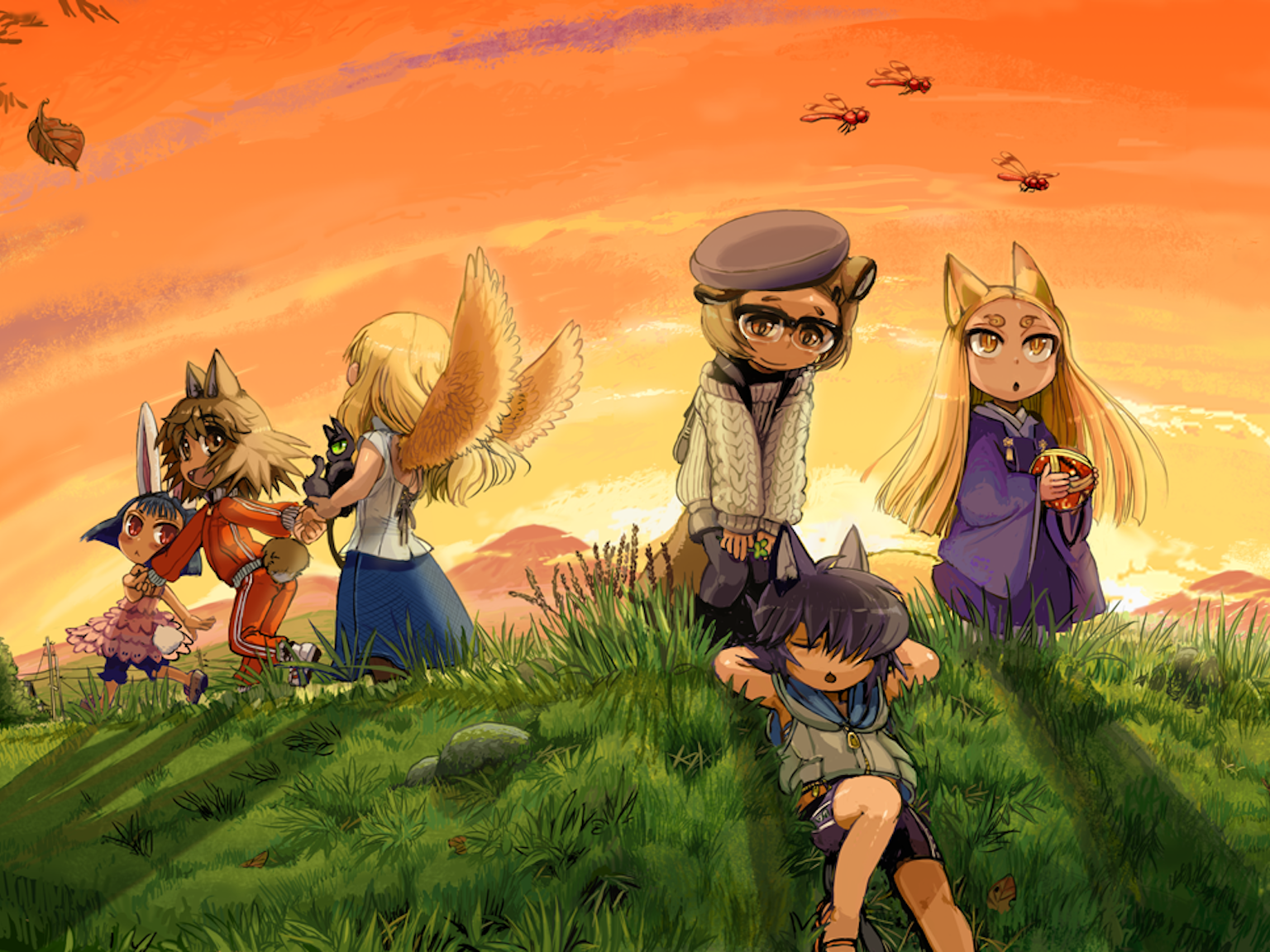The world needs more games like GOLDEN SKY STORIES.
I'm calling this an after-action report (and not a review) because I'm mainly going to be talking about my experiences playing this game at the table, and not the physical object of the book. I'll talk about that too, but it won't be my focus.
GOLDEN SKY STORIES, if you haven't heard of it before, is a Japanese RPG by Ryo Kamiya & Tsugihagi Honpo translated into English by Ewen Cluney. It's about shape-changing animal spirits called Henge who live in and around a rural Japanese town, and help the children and adults with their problems.
It is a gentle game that recalls the movies of Hayao Miyazaki, and if you've ever enjoyed films like Spirited Away, My Neighbour Totoro, or The Secret World of Arietty, this game might be for you. What distinguishes it from almost every other game on the market is that this game is explicitly non-violent, a game about friendship, kindness, and empathy. In the words of Steve Darlington, it is a game about healing people. If all of that sounded just a little too saccharine for your liking, this game might not be for you.
I've run GSS twice now, the first time for a short run of 3-4 sessions in between longer, darker games, and just recently as a one-shot while my group wasn't able to gather at full strength for our regularly-scheduled session of wrenching drama. This most recent time I had been asked specifically to run it as something to pick us up after months of dark and serious business in our monthly SHADOWRUN game (which is less like SHADOWRUN as it exists in its printed incarnation and more like the gritty crime drama of my dreams). I think it works particularly well as a change-of-pace game, and if your group regularly treads into dark territory like mine does, it may well be necessary to keep up morale every once in a while. A lot of gamers I know occasionally throw in a game of something like FIASCO or perhaps an old-fashioned dungeon crawl here and there to switch things up, tonally, but GSS is like an adrenaline shot of sunshine right to the heart. You don't realize quite how grim and bleak things are usually until you play something that is as unapologetically nice and kind as this. This is a good thing; losing perspective dilutes the power of games that want to be serious, and can turn them into melodrama easily. Or just make you feel shitty, if you struggle with depression like I do.
Laughing with your friends is one of life's great pleasures, and GSS provides lots of opportunities to do just that. It provides the right character tools to encourage players to take on broad comic types, and get into appropriate goofy mix-ups. Maybe the greatest strength of a good comedy game is to break through players' resistance to the idea of sitting down to make comedy together, to be funny, something that people often do until they start to think about it and worry they're not going to be funny enough. GSS does this very well, with large double-page spreads that introduce the different Henge spirits and lists of powers and weaknesses that are just what you need to get the comedy ball rolling.
The kind of adventures that the characters go on in GSS are explicitly simple adventures, involving things like helping a newcomer to town fit in, a child find their lost glasses, or a lonely person find friendship. These stories seem very bare-bones compared to the sort of epic fare we're used to, but having simple stories means making space for comedy bits and straight-forward, emotional resolutions. The Henge meet someone new, spend some time with them, help them with their problem, and the problem is resolved. Simple, elegant. And I have yet to play a game that felt like it needed more content -- a session of GSS has often been shorter than my average drama-centric games, but they always feel complete and satisfying.
I have one criticism of this game, and it's a difficult one. The system is unlike any Western roleplaying game I've ever played, or at least any that spring to mind. There is no dice-rolling or randomness of any kind in GSS; tests are resolved by spending a budget of points (called Feelings and Wonder) to do things or use magic powers, respectively. Feelings and Wonder are gained by building Connections (relationships) to the other characters in the group. There is also a "reward" mechanic where players give each other points called Dreams for doing or saying things they like as play progresses, and they can spend Dreams to improve relationships at the end of a scene. All of this is pretty simple to grasp, generally, as play proceeds, but it leads to a weird problem.
 |
| This is a game that's unapologetically CUTE. |
This is a very small criticism, though. I like GOLDEN SKY STORIES a lot, and I think a lot of groups would get a lot out of playing it. I am very much in favour of games like this that push gaming in different, kinder directions.
We all need a little kindness sometimes.


No comments:
Post a Comment